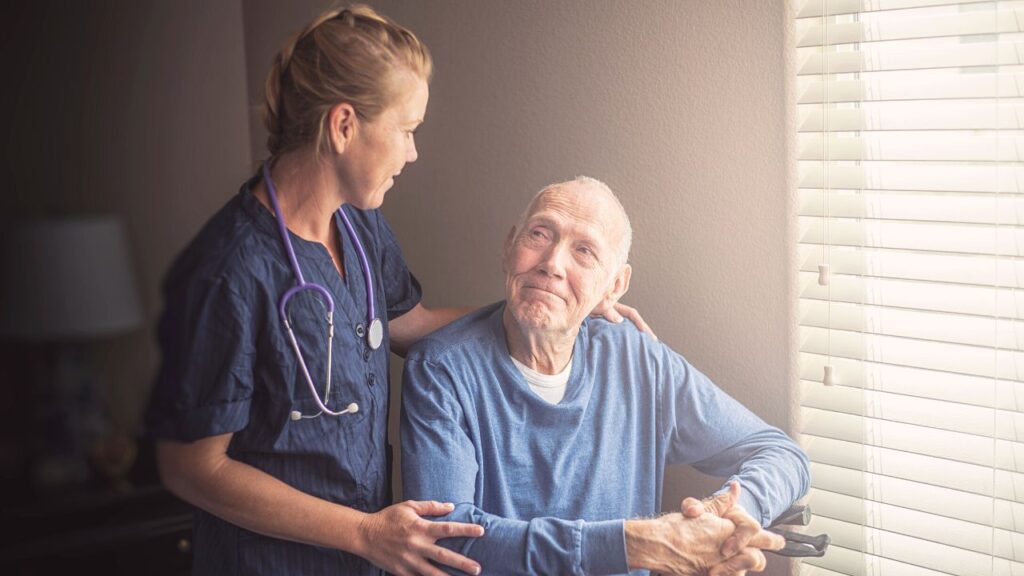If you enjoy taking care of people and are looking to start a challenging yet rewarding and meaningful career, then care work could be the right choice for you to consider. Giving care to those who require it allows you to spend time doing something exciting and fulfilling.
A career as a care worker means you can make a living, cultivate various skills, and advance your career while knowing that you’re improving the lives of vulnerable people since no two days are the same.
If you’re new to the care industry, you might wonder, do I need qualifications to work in a care home? Or you may want to broaden your expertise and skills to boost your career or transform the care you provide.
On the other hand, you can be an employer that wants to ensure you are fully aware of prospective hires’ education and experience requirements.
Whatever the case, we have summarised the necessary care worker credentials in the UK and care and required care training in this post.
What Are The Basic Qualifications You Need To Become A Caregiver?
You do not necessarily require any specific qualifications or work experience to apply for a health and social care position. What matters is the attitude and principles you bring to your work towards people who require more care and support.
You are also advised to be open-minded to specific training opportunities, such as becoming a first aid provider. In addition, most care services will favour individuals with some health and social care knowledge, experience, and credentials.
Even though you don’t need any specific qualification, consider obtaining First Aid training and a National Vocational Qualification (NVQ) in Health and Social Care before beginning a career in caregiving (Levels 2 and 3). These courses are incredibly beneficial for anyone interested in a health and social care career. They instruct you on best assisting vulnerable individuals with medical issues or learning disabilities.
As soon as you begin working as a care worker, it would be best if you prepared to enrol yourself in training programs. In all care services, an induction program of 12 weeks is conducted. This guarantees that care workers adhere to the UK’s basic care standards, which include safeguarding, equality, inclusion, health and safety.
What Qualities Define a Good Caregiver?

There are numerous ideal skills required to be a successful caregiver. You should want to help people and be patient while doing so. You must have excellent communication skills to interact effectively with your service users and team. Because you must preserve and update records daily, organisation skills are essential. Some days will be more complex, and you may become frustrated, but you must always be sympathetic, polite, and courteous to others.
The following qualities can help you become a good caregiver:
- A warm and friendly personality
- Having a good sense of humour
- Unrelenting patience
- Excellent problem-solving abilities
- Maintaining your calmness under stressful circumstances
- Ability to build and nurture strong relationships
Core And Mandatory Training
Refreshing your skills and knowledge on various issues is crucial in care. Care workers should renew their expertise for a variety of reasons, including:
- Implementation of new legislation or best practices: It is critical that caregivers are kept up to date on the latest legislation and best practices, and they must be trained to deliver this in their daily work.
- Timeframe: For some caregivers, refresher training may be necessary or advised over periodic intervals.
- Introduction of a new risk: Changes in policies and practices, new hardware and software usage, or the care or working environment might all fall under this category. This also includes assisting new service users with specialised, additional, or different demands.
How to Become a Care Giver?
If you’ve decided that working in care is a good career path for you, there are a few steps you need to take to get there. The first step is to ensure that you have the relevant skills, which include qualifications, training, and inherent talents. Do they meet the criteria and capabilities of a good caregiver?
If you lack the necessary skills and training, you must commit to acquiring them. So, in addition to looking for and enrolling in the course to help you attain your objective, you should apply for volunteer work. In addition to an NVQ in Health and Social Care, you may wish to look into courses in Positive Dementia Care, Social Care with Families, and End of Life Care.
After you’ve considered your career options and determined that you have the requisite abilities and qualities to succeed, the next step is to assess specialisations. Is there a particular area you’d like to work in or a specific set of people you’d like to work with? This includes the elderly, terminally sick patients, and those with learning difficulties. And do you need any additional qualifications to work with these groups?
Now that you have the necessary abilities and know what field you want to work in, you must identify and apply for a position. You can work full or part-time for a care service on a contract or permanent basis, freelance on a contract-to-contract basis, or seek the services of a reputed agency like Denizens that will find you placements in various services.
Give us a call or get in touch to learn more about our healthcare recruitment services and solutions.


